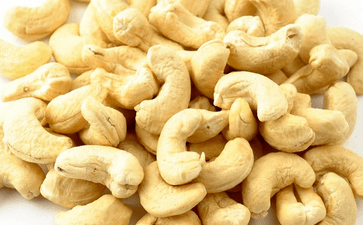Cashew earns Ghana $197m, becomes leading non-traditional export product
 Ghana’s cashew sector is now the leading agricultural non-traditional export, with a total amount of $197 million worth of export revenue in 2016, representing 53 per cent of the total revenue of $371 million.
Ghana’s cashew sector is now the leading agricultural non-traditional export, with a total amount of $197 million worth of export revenue in 2016, representing 53 per cent of the total revenue of $371 million.
The sector, with an estimated production area of about 89,000 hectares, had created about 40,000 jobs in the production and 1,800 jobs in processing, which would help attain the district level industrialisation drive and diversify exports for more revenue.
Mr Kennedy Osei Nyarko, the Deputy Minister in charge of Perennial Crop, Ministry of Food and Agriculture, announced this in Aburi at the first session of the sixth edition of a five-day Master Training Programme for experts along the value chain to promote the competitiveness of African cashew in the Eastern Region.
The programme is jointly organised by Competitive Cashew Initiative and the African Cashew Alliance (ACA), in collaboration with the Ministry of Food and Agriculture and the Cocoa Research Institute of Ghana, with support from Gesellschaft für Internationale Zusammenarbeit (GIZ).
It brought together 83 African cashew experts from nine countries: Ghana, Benin, Sierra Leone, Cameroon, Burkina Faso, Côte d’Ivoire, Nigeria, Guinea Bissau and Mozambique to discuss how to build national and regional network for future collaboration.
The programme aims at increasing theoretical knowledge and skills of African cashew experts along the value chain and promote the competitiveness of the crop.
Mr Nyarko said government was working on the establishment of more nurseries to ensure the availability of good planting materials to cashew farmers to increase production and encourage local processing.
He said the Ministry was committed to supporting the cashew industry with improved planting materials to revive the sector.
“Through the Ministry, about 13 metric tonnes of polyclonal cashew seeds have been shared with Sierra Leone and Togo to strengthen the sector and make it competitive in the global market,” he said.
He said government was putting in place measures to increase production of cashew and encouraged local processing to ensure that the country reaped the maximum benefits.
Mr Nyarko said government had identified areas that were vulnerable to the effect of climate change and develop sustainable strategies for its mitigation.
“As a result the European Union Regulation for Registration, Evaluation, Authorisation and Restriction of Chemicals project for the Upper West Region and surrounding districts targets climate change mitigation and adoption through cashew cultivation,” he said.
He urged the participants to network and share ideas on best practices and impart the knowledge and skills acquired to contribute to making the African cashew industry sustainable and competitive.
Mrs Marian Lamptey, the Head of Corporate Services, African Cashew Alliance, said Africa was now the largest producer of raw cashew nuts, accounting for more than half of the world’s production, and that processing remained a challenge with less than 10 per cent level.
She said an increase of 25 per cent in value-added cashew products would have a great impact on poverty reduction, generating over $100 million in household income for rural families.
She said participants would be introduced to monitoring and evaluation, gender and cashew value chain promotion, and at each session, “there is a combination of topics on self-reflection and perception management and on behaviours and values that affect learning and teaching skills”.
Mrs Lamptey said during knowledge sharing sessions of theories and their application, participants would learn about all aspects of the cashew value chain from production and processing of raw cashew nuts, to economics, cashew market dynamics, marketing and financing mechanisms.
On return to their host institutions, the participants would have a multiplier effect on the cashew industry when sharing their knowledge and experiences gained from the training programme, she said.
Participants would have a field visit to the research station of the Cocoa Research Institute of Ghana among other cashew production areas for practical experience.
Dr Yaw Osei Adutwum, the Minister of General Education, said the cashew industry was working with the Council for Technical and Vocational Education and Training to build capacity and learn best practices to improve the sector for the betterment of Africa.
He called for better pension schemes for farmers to improve on their livelihood to attract the youth to venture into farming.
Source: GNA
